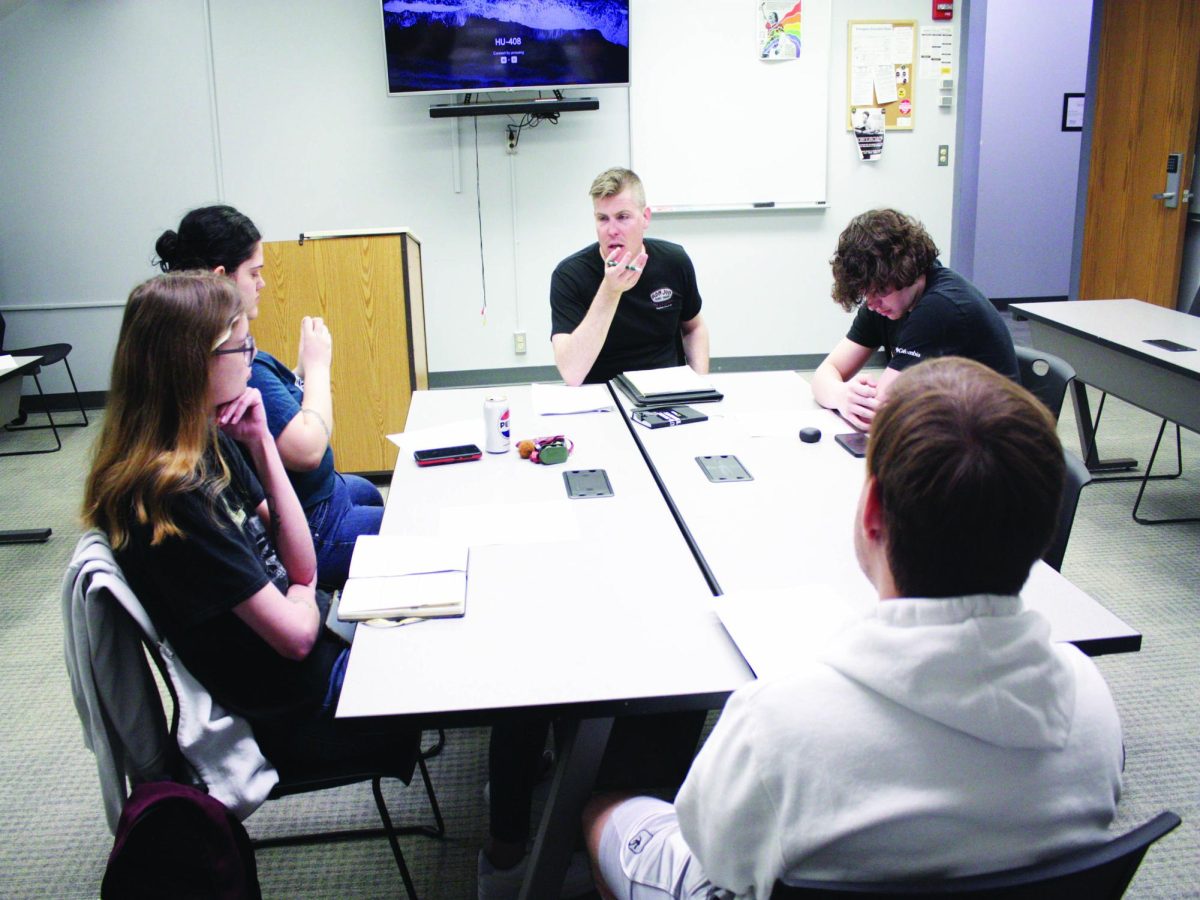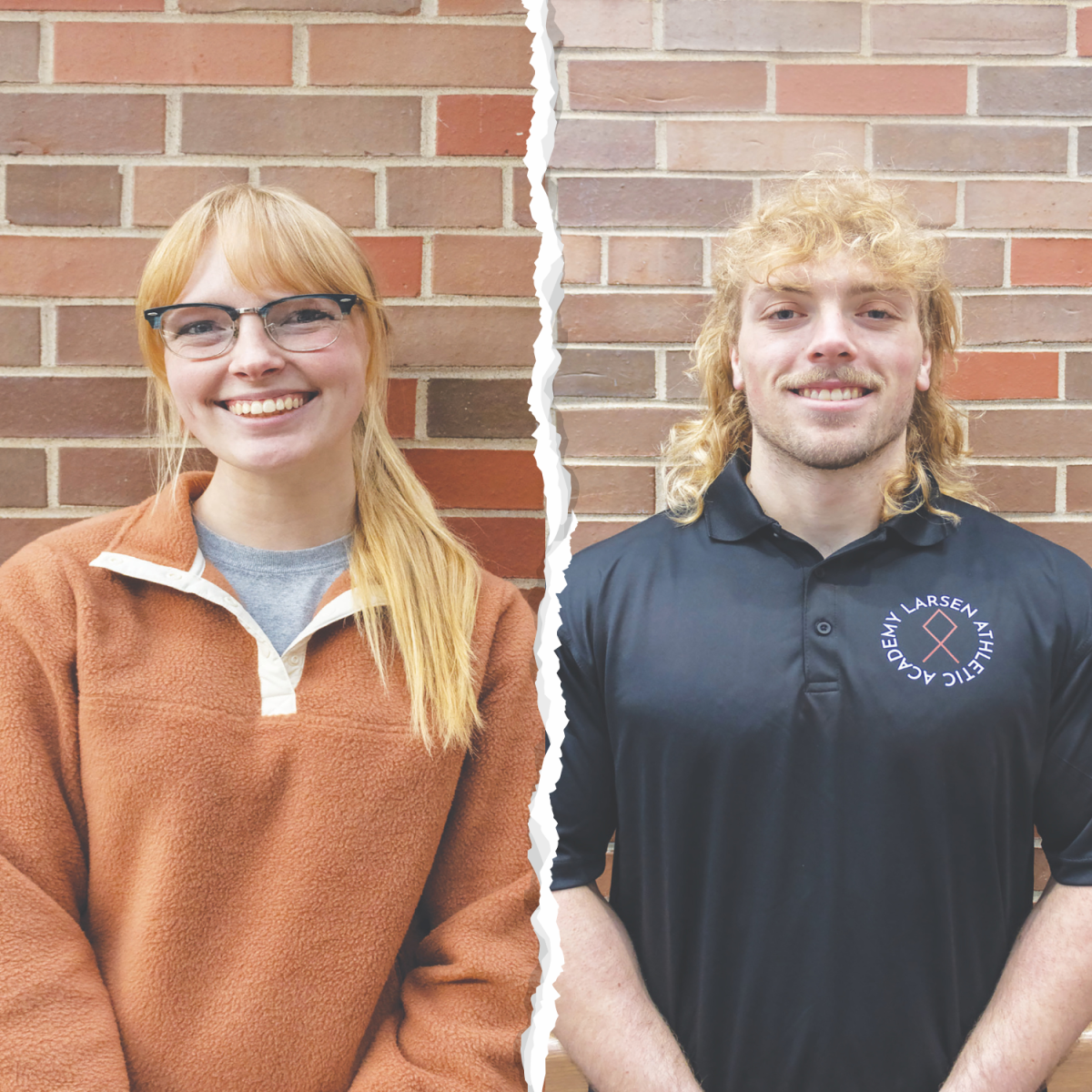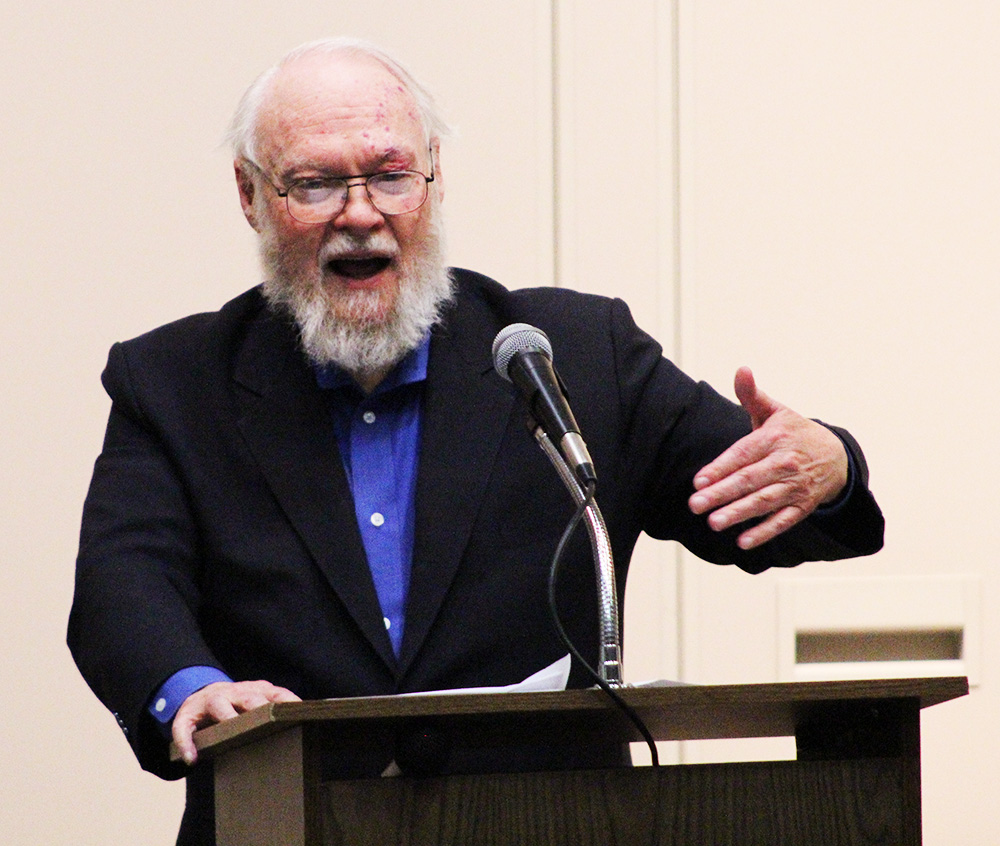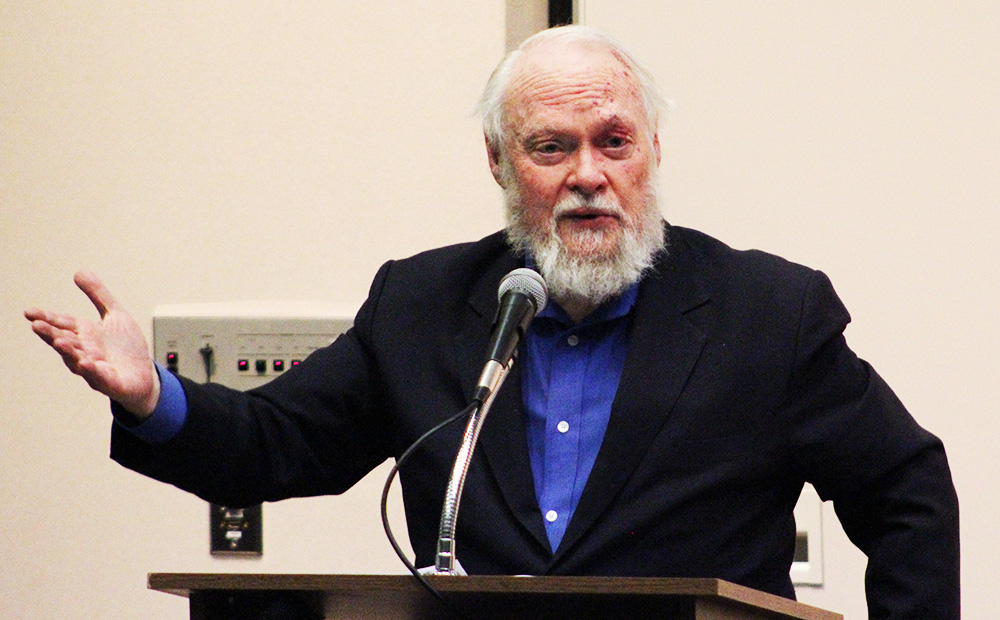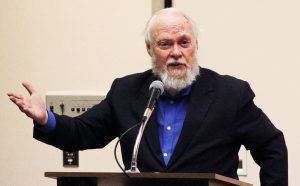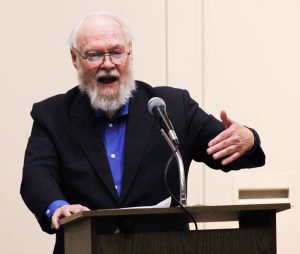“Hannah Arendt and the Holocaust”
April 11, 2018
Students got to listen to Abigail L. Rosenthal’s findings on the Holocaust and a young woman named Hannah Arendt on Monday.
Though Rosenthal was not able to present the her paper herself, her husband Jerry Martin stepped in for her, reading her paper. He later did a presentation over the theology of religion.
Martin jokingly mentioned that he is the leading expert in the thinking of his wife.
Even though she wasn’t able to be present, she did have a few things she wanted students to know.
“The most revealing document I came across was ‘Shadows,’ the entry from the diary that Hannah Arendt wrote when she was a nineteen-year-old university student,” said Rosenthal.
“In ‘Shadows,’ the young Arendt foresees a choice between two paths, one of which she will take in the future. The first would be a natural path, where she would let experience unfold honestly and live her life without pretense or masks. The second path would be dominated by the love of power. She would use her intellectual gifts to gain influence over others, whether or not her claims were truthful. It seems to me very rare for a 19 year old to foresee her whole future and its moral choices. Unfortunately, as I argue in my paper, Arendt chose the second path.”
Martin said that Arendt did a lot of things, but had some that were more influential.
“Arendt’s most influential work was on one character— Adolf Eichmann,” said Martin.
He said that Eichmann headed “the animus Gestapo section four” on Jewish affairs and deportations. In May 1960, he was seized and charged with five counts of crimes against the Jewish people, six counts against humanity.
Martin said Arendt wrote a book called “Eichmann in Jerusalem: A Report on the Banality of Evil” about his wrongdoings, and how he created a regime.
Also spoken about from the paper was Arendt had an affair with her professor, and her interactions with him influenced her work.
“Though Abigail Rosenthal wasn’t able to attend, Jerry Martin did a wonderful job reading and explaining his wife’s work,” said Libby Dunn, a freshman. “I enjoyed learning about the effect Hannah Arendt’s tumultuous life had on her motivation to write about Adolf Eichmann. The presentation really made me question her (Arendt’s) psychological state.”

